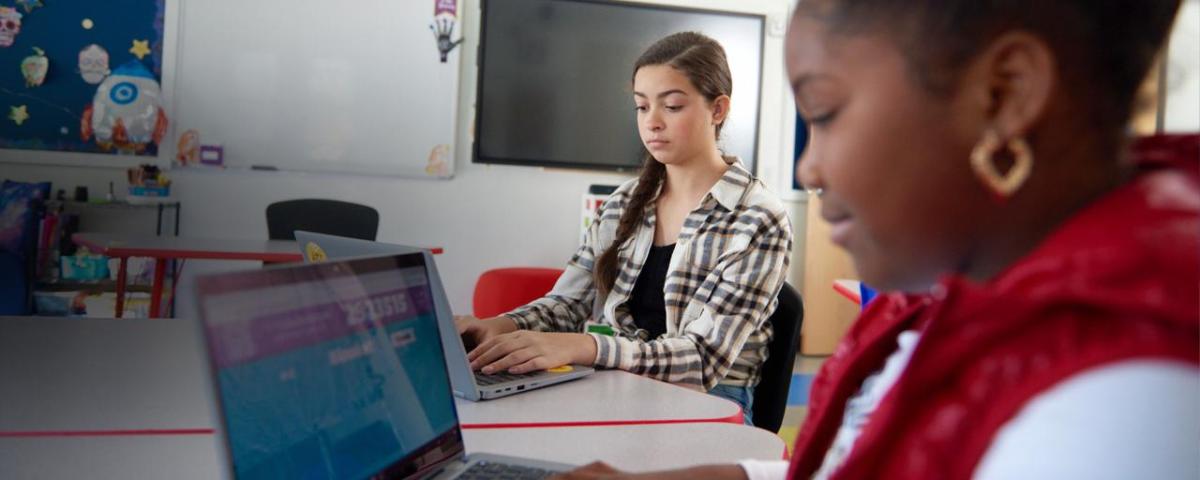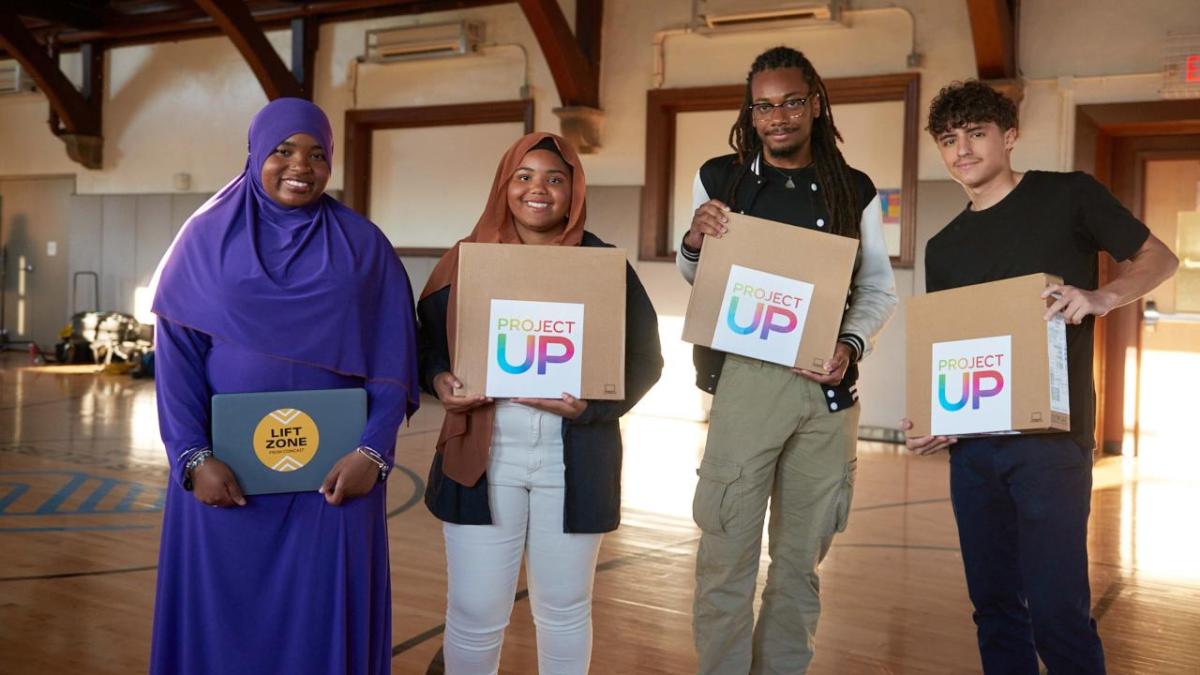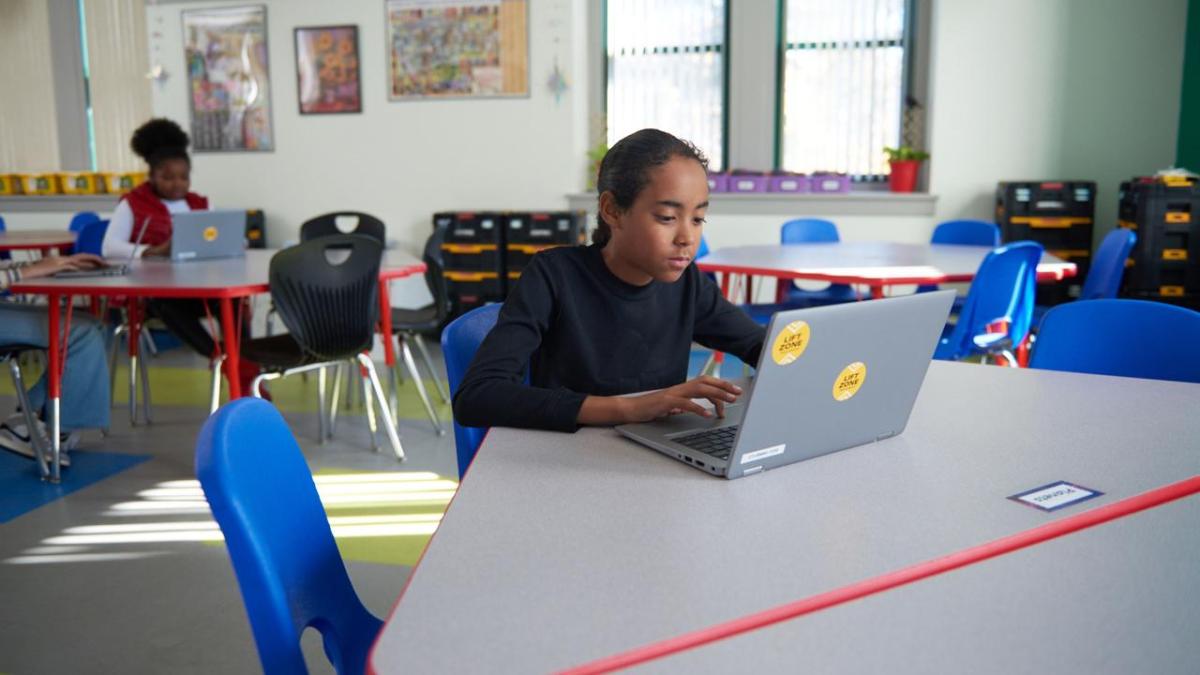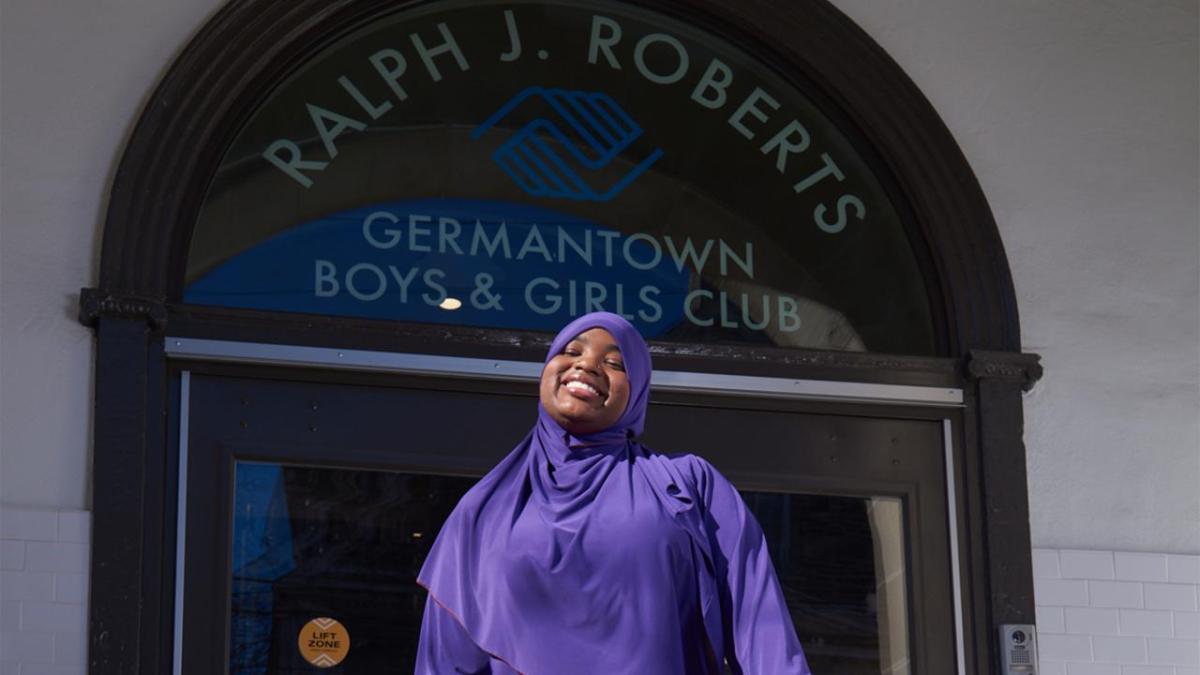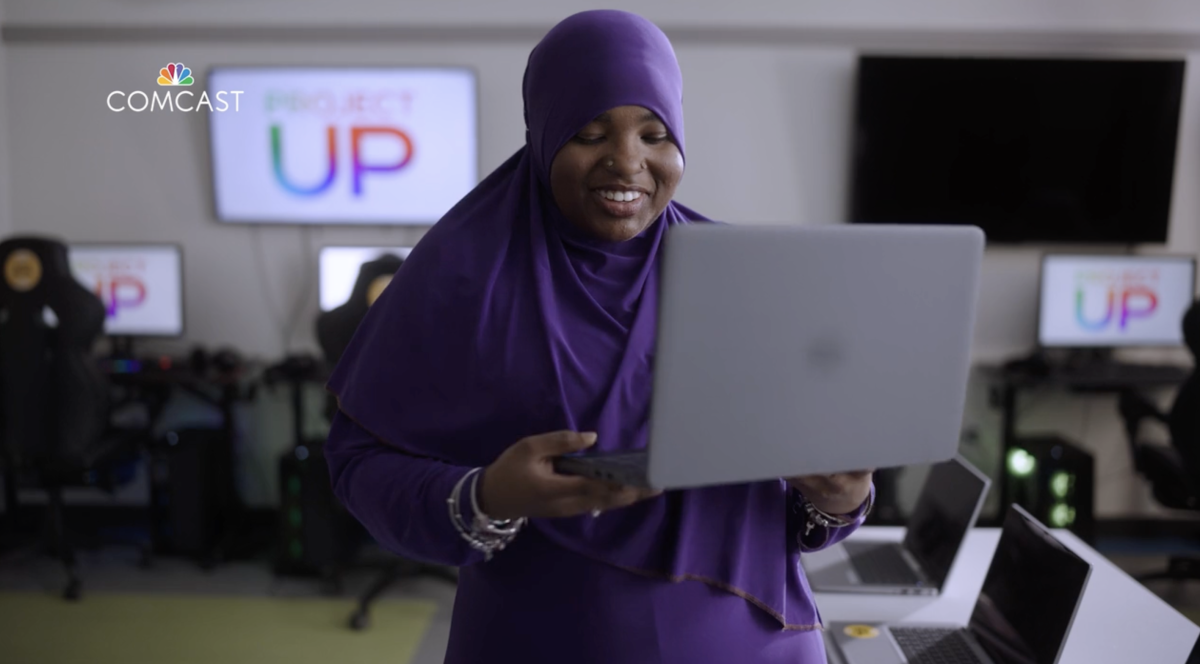Lift Zones: Empowering Communities by Bridging the Digital Divide
KEY TAKEAWAYS
- Comcast partners with local nonprofits and community organizations to install Lift Zones, which offer free WiFi that enables families to access the Internet and learn digital skills.
- To showcase the impact this program is having in communities, Comcast teamed up with teens at the Ralph J. Roberts Boys & Girls Club in Philadelphia to see what they are accomplishing with the help of their Lift Zone.
- Lift Zones are a critical component of how Project UP provides the tools, resources, and skills people and communities need to succeed in a digital world. 74% of Lift Zone users surveyed would recommend them to others.
Why Do You Lift?
The global pandemic in 2020 changed the way we work, learn, and communicate. Among the biggest shifts were mandatory remote learning and work-from-home policies that called attention to the persistence of the digital divide.
Comcast created “Lift Zones” to help combat digital inequities and connect more families to essential resources like Digital Navigators – tech experts who can assist people with getting online, using devices, and acquiring digital skills. These WiFi-connected hubs also provide free Internet access and other digital services in neighborhood locations including community centers, gyms, parks and recreation facilities, and even small businesses.
At the time, the goal of Lift Zones was to work collaboratively with local governments and civic leaders, educators, and community nonprofit organizations to provide spaces where students and caregivers could go while schools were shut down.
Today, the award-winning Lift Zones program is a core component of Project UP – our comprehensive $1 billion initiative to connect people to the Internet and provide the digital skills training needed to unlock economic opportunity. Comcast has now installed more than 1,250 Lift Zones nationwide.
In the new digital series “Why Do You Lift,” Comcast sat down with several teens at the Ralph J. Roberts Boys & Girls Club – a Comcast Lift Zone in Philadelphia’s Germantown neighborhood – to learn what they have been able to accomplish with the help of free WiFi and digital skills assistance. These teens are using their Lift Zone for enhanced learning outside the classroom – from teaching a new generation of musicians, to exploring the world through art, to mentoring other young people.
What is a Lift Zone?
Lift Zones are spaces in neighborhood community centers that provide free Internet access for students and families. The initiative also offers hundreds of hours of free educational and digital skills content to help navigate online learning. The type of location can vary – it can be a nonprofit community center, a gym, a parks and recreation facility, or even a small business.
They can help:
- Students do homework before or after school.
- Adults work remotely or apply for a job.
- Seniors learn digital skills.
- Veterans advance their careers and access their hard-earned healthcare benefits.
- People access telehealth appointments.
- Connect someone with a Digital Navigator for tech support.
The Impact of Lift Zones
In an effort to understand the ways in which having Lift Zones in a community positively impacted students and their families, Comcast partnered with Benenson Strategy Group to conduct research on the topic.
Access to reliable WiFi, devices, and a supportive neighborhood space helped reduce frustrations with remote learning that many families who did not use Lift Zones experienced. In fact, parents who turned to Lift Zones during the pandemic were not only significantly more satisfied with the community resources that were available to support learning, but also looked more favorably upon how their children’s schools and local governments managed remote learning. Nearly all of the parents surveyed who relied on Lift Zones said they have been helpful, and many have continued to return to them again and again.
An overwhelming majority of community leaders also said that ensuring children have access to high-speed Internet and essential technology should be a priority. Even now that children are back in classrooms, both parents and community leaders see additional potential for Lift Zones in the future, including providing online access to educational resources as well as devices for adults who lack them at home. Among the potential offerings identified as most helpful are after-school programs like AI tutoring to meet specific needs of students, coaching for students applying to college, tech support for using devices or troubleshooting problems, telehealth pods for medical appointments, and programs to teach seniors how to use technology to improve their health and safety.
The Benenson Strategy Group study found compelling evidence that Lift Zones are already helping parents and children:
- 90% Nearly all Lift Zones users say they have been helpful.
- 62% More than 6 in 10 Lift Zone users have returned to get online more than twice.
- 74% About 3 in 4 Lift Zone users are very likely to recommend the Lift Zone in their community.
With broad support for Lift Zones and the resources they provide to children and families, Comcast remains focused on ensuring Lift Zones continue to make an impact in communities nationwide.

